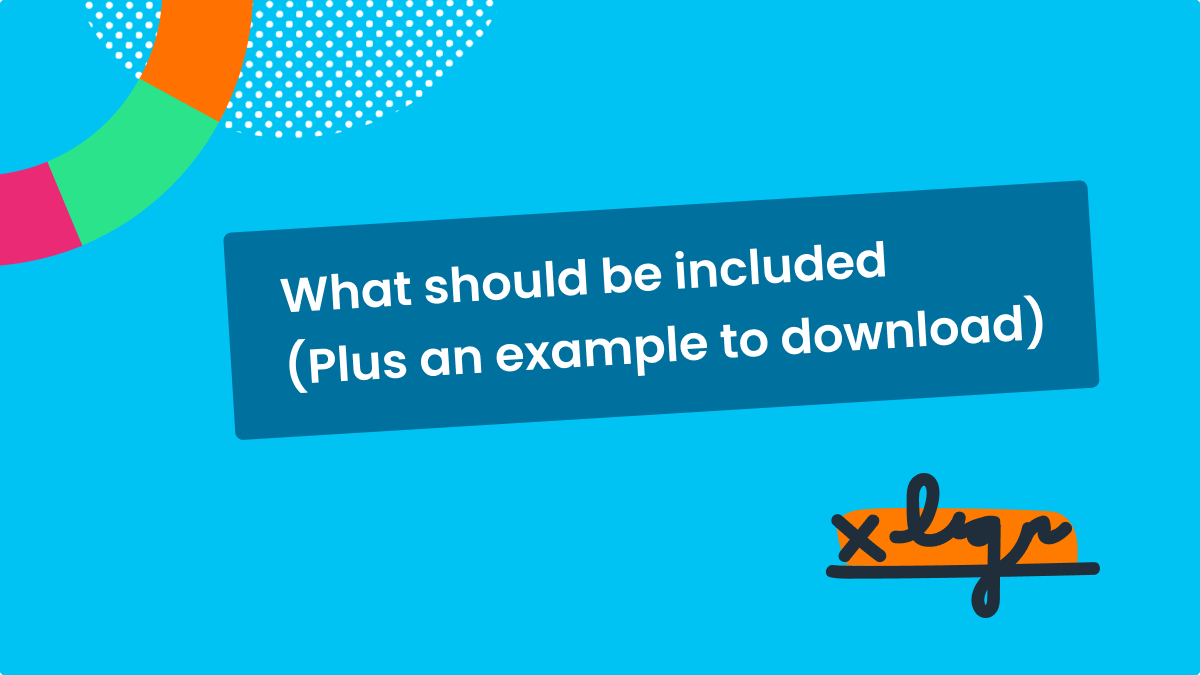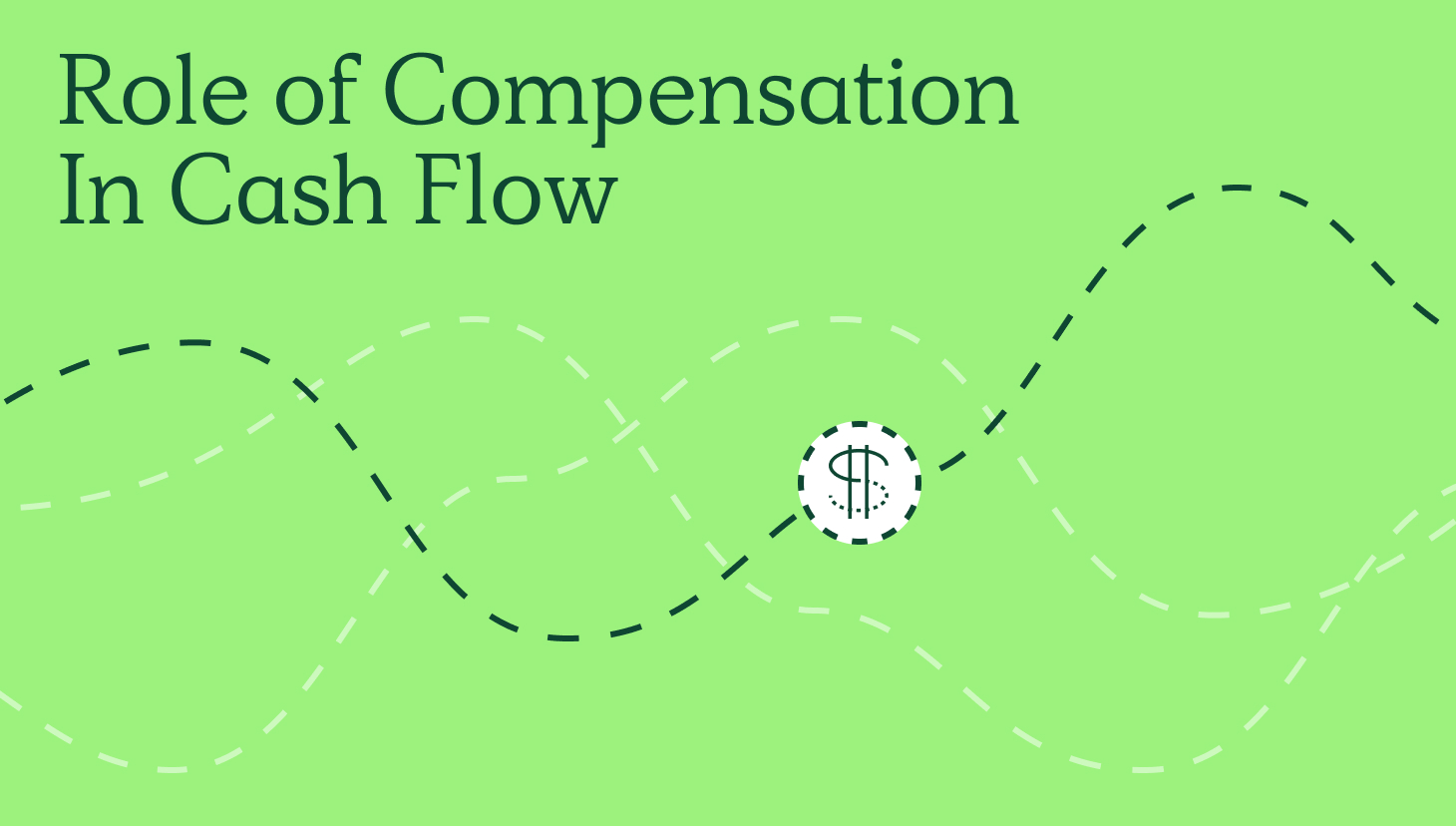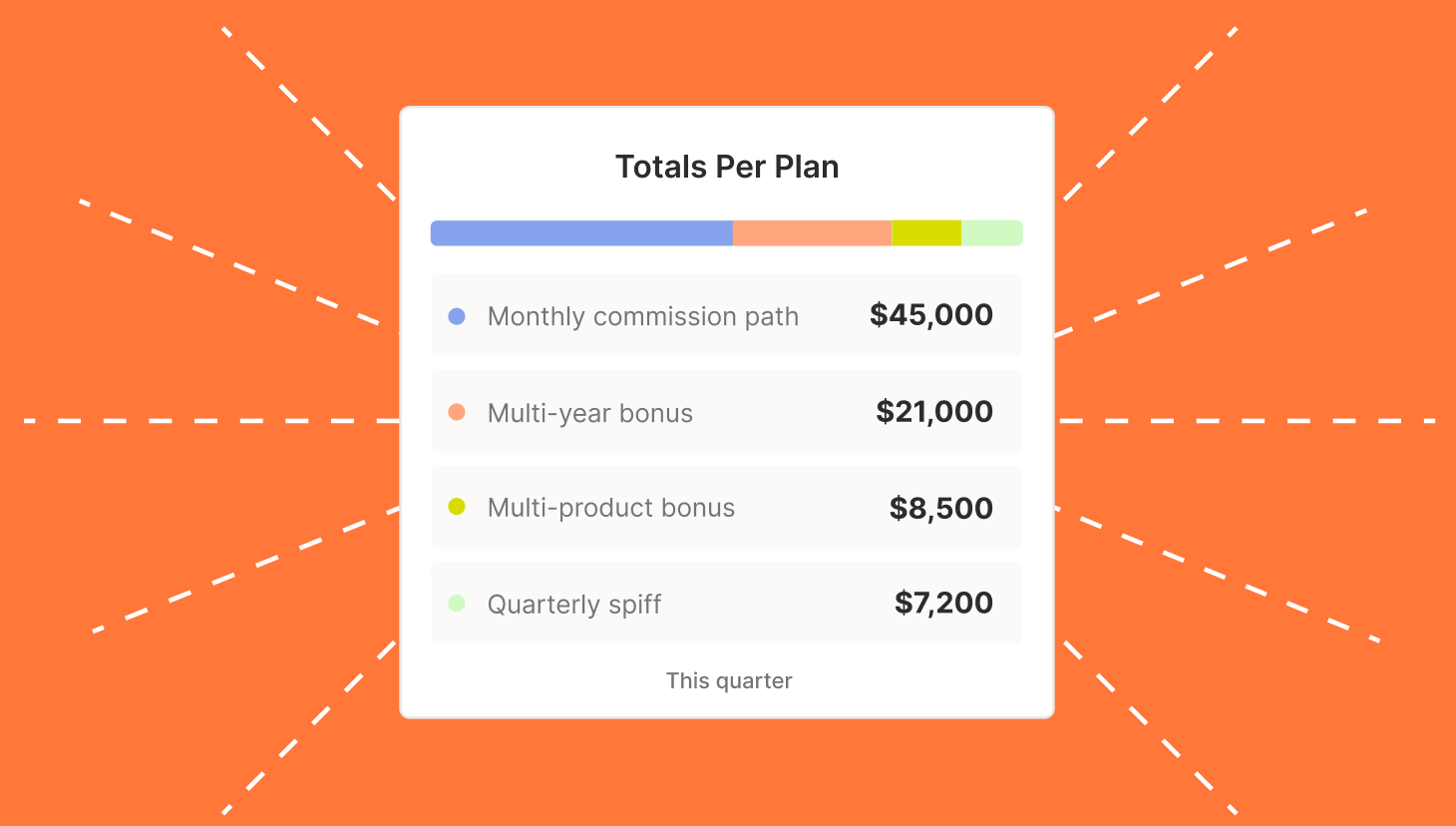Get the commission agreement template
A sales commission agreement may seem like an inconvenience, but not only are they the law in California and New York, they are beneficial to you and your reps in many ways.
So, even if you don’t employ any reps in those two states, it is in your best interest to invest the time and effort to prepare a proper sales commission agreement. Then, once you have that prepared, you can confirm your sales team’s understanding by having them sign the agreement.
As a heads-up, this process can be time-consuming. But is totally worthwhile.
Not only are you complying with the law (if you happen to have team members in states that require it), but you also take a step to ensure your reps understand how and when they earn commissions.
This ultimately creates alignment and transparency across the comp planning process.
When reps understand how they earn commissions, your comp plan does what it’s intended to do — motivate and guide reps.
Otherwise, everyone involved ends up frustrated. Reps grow unhappy with their pay and can’t understand why they aren’t making the income they were expecting. Your team members miss quota, which keeps your organization from hitting revenue targets.
Need a commission agreement template for a specific role?
Why is a Commission Agreement Important?
A commission agreement ensures clarity and alignment between an organization and a commissionable sales rep by explicitly defining compensation terms, including commission rates, payout schedules, and performance expectations. This agreement reduces misunderstandings and disputes, fostering trust and accountability between both parties. It also provides a legal framework to protect the company and the rep, ensuring compliance with labor laws and organizational policies. Ultimately, a well-crafted agreement motivates the sales rep by clearly linking their efforts to rewards, driving performance and achieving business goals.
When to Implement Commission Agreements
That’s where plan verification comes into play.
Anytime you introduce a new comp plan or change to an existing one, you should issue a commission agreement.
We call this process plan verification, which occurs when a rep signs a commission agreement that outlines the details of their sales commission plan.
Typically, this happens at the beginning of the year and when mid-year adjustments are made.
Leaders at larger companies often administer compensation plan verifications via DocuSign, storing agreements in Dropbox, on Google Drive, or in an email folder. This process is similar for smaller companies as well but may take place in person.
Attaining 100 percent comp plan verification can be a slow, frustrating, manually tracked process that takes weeks to complete.
Fortunately, it doesn’t have to be that way. With QuotaPath’s Plan Verification, your reps can verify their compensation plans in just a few hassle-free steps directly in QuotaPath.
Commission Agreement Example
Before you can verify your reps’ understanding of the sales compensation plan, you need to actually create your commission agreement. This template should include the following:
- Effective dates – The specific start and end dates when the plan will be used to calculate commissions.
- Intro – This section explains what the document is, its purpose, and what action the recipient needs to take.
- On-target earnings – A clear explanation of the amount of money the rep can expect to earn if they hit 100% of quota. We see this number most often as an annual figure. This section delineates how much the rep should expect to receive from base salary and from commissions
- Quota – This section specifies goals the sales rep must attain during a designated period to earn commission
- Commission table – A listing of commission rates earned on deals depending upon the rep’s progress toward quota.
- Payment eligibility – An explanation of the timing of qualified commission payments and any other rules pertaining to commission payment, such as the client paying their entire invoice by a specified date.
- Bonuses – A listing of quarterly, monthly, or annual bonuses along with related targets to hit, the amount to be paid, and when the bonus will be paid.
- SPIFs – This section addresses the fact that there may be times throughout the year, such as slow periods, when the company wants to drive revenue by running contests, incentives, and/or bonuses (called SPIFs). This part of the sales compensation plan template specifies that SPIFs include short-lived, time-based, one-off compensation drivers. As such, management will provide and distribute the terms of said programs as they occur.
- President’s Club – An explanation of what this reward is and how to qualify.
- Clawbacks — A clawback occurs when a rep must pay commissions back to the company when a customer abruptly ends the contract within a certain period. This section is where you detail rules relating to clawbacks.
- Legal Disclosure – This section communicates that this is the entire compensation plan, that it supersedes prior agreements, and that verifying by signing signifies acceptance and compliance by the rep.
Commission Agreement Template
To start, download this commission agreement that we created, then tailor it to your specific details.
For more information on QuotaPath and our Plan Verification feature, chat with a team member today.
And if you’re looking for sales compensation plan templates specific to modeling structures, check out our free Compensation Hub.
Best Practices When Using a Commission Sales Agreement
Here are five best practices when using a commission sales agreement:
- Clearly Define Compensation Terms: Specify commission rates, payment schedules, performance metrics, and any conditions for earning or forfeiting commissions. Ensure these terms are precise and unambiguous to prevent disputes.
- Include Compliance and Legal Protections: Align the agreement with applicable labor laws, tax requirements, and industry regulations. Outline how disputes will be resolved and include confidentiality clauses to safeguard company information.
- Address Quotas and Performance Expectations: Clearly outline sales targets, quotas, or other performance benchmarks required to earn commissions. Detail how adjustments (e.g., for refunds, cancellations, or returns) will affect payouts.
- Outline Termination and Post-Termination Terms: Specify how commissions are handled if the sales representative leaves the company, including any owed payments for deals closed prior to termination.
- Ensure Mutual Agreement and Updates: Review the agreement with the sales rep to ensure understanding and alignment. Regularly revisit and update the agreement as compensation structures or business goals evolve, obtaining signatures for each revision.
Common Mistakes When Drafting A Commission Agreement
Like anything, some common mistakes can arise when writing your commission agreement.
These are the most common to pay attention to:
Lack of Clarity in Terms: Ambiguous language around commission rates, payout schedules, and performance metrics can lead to confusion and disputes. Clearly defining terms, such as when commissions are earned (e.g., at contract signing or payment receipt), is critical for both parties.
Failure to Address Adjustments and Exceptions: Omitting how adjustments for refunds, cancellations, chargebacks, or partial payments impact commissions can leave the agreement incomplete. This oversight can result in financial misunderstandings and legal complications.
Ignoring Termination and Post-Termination Clauses: Not specifying how commissions are handled when a sales rep leaves the organization can lead to disagreements. Clearly state whether commissions will be paid for deals closed before termination and under what conditions.
Streamline commissions for your RevOps, Finance, and Sales teams
Design, track, and manage variable incentives with QuotaPath. Give your RevOps, finance, and sales teams transparency into sales compensation.
Talk to SalesFAQs
Can you write your own commission contract?
Of course! You can write your commission contract, but it’s important to ensure it is comprehensive and legally compliant. Including clear, unambiguous terms, consulting a legal professional, or using templates tailored to your industry can help ensure the contract protects both parties and aligns with applicable laws.
What key sections are included in a commission agreement contract?
A commission agreement typically includes key sections such as compensation structure (commission rates, payouts, and schedules), performance metrics or sales targets, dispute resolution processes, termination clauses, confidentiality agreements, and any conditions for earning or forfeiting commissions. These sections ensure clarity and reduce the risk of disputes.
Should sales targets be part of the commission’s agreement?
Yes, including sales targets in a commission agreement can help align the sales rep’s efforts with the company’s revenue goals. Clearly defined targets provide transparency, establish performance expectations, and help determine when commissions are earned, ensuring alignment between the organization and the sales representative.
How do I terminate a commission agreement?
Termination of a commission agreement should follow the terms outlined in the contract, such as providing notice or meeting specific conditions. Clearly document the termination in writing, and specify how final commissions will be handled, ensuring compliance with applicable labor laws and avoiding disputes.
When should a commission agreement be used?
A commission agreement should be used whenever a sales representative’s compensation is tied to performance-based metrics, such as revenue generated or deals closed. It establishes clear expectations, protects both parties legally, and ensures alignment on how commissions are calculated and paid.
What is a commission letter?
A commission letter is a simplified document that outlines the basic terms of a commission structure, often as part of an employment or contractor agreement. It typically includes details such as commission rates, payment schedules, and any performance expectations, providing a concise reference for both parties.
Can I edit your commission agreement template?
Yes! Go forth and customize.
What is a sales commission policy?
A sales commission policy is an internal document that outlines the company’s approach to calculating, paying, and managing commissions. It includes details about eligibility, performance metrics, adjustments for refunds or cancellations, and compliance with applicable laws, serving as a guideline for both employees and management.



